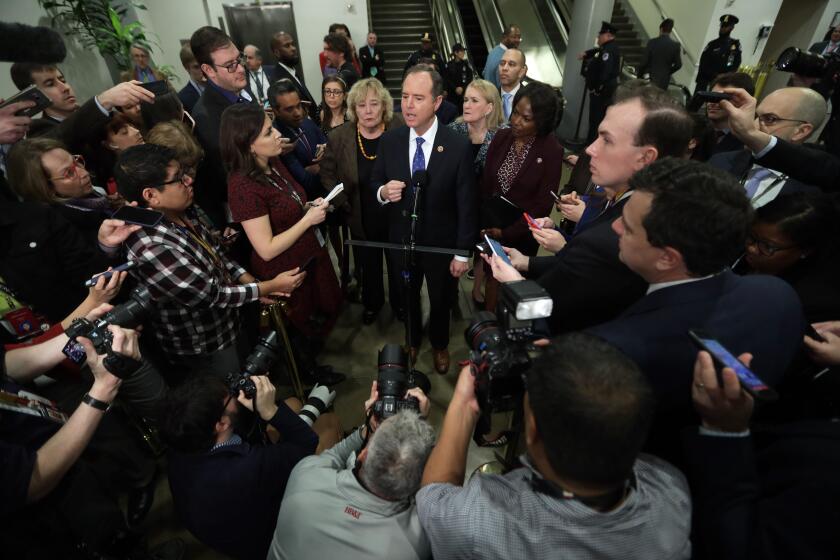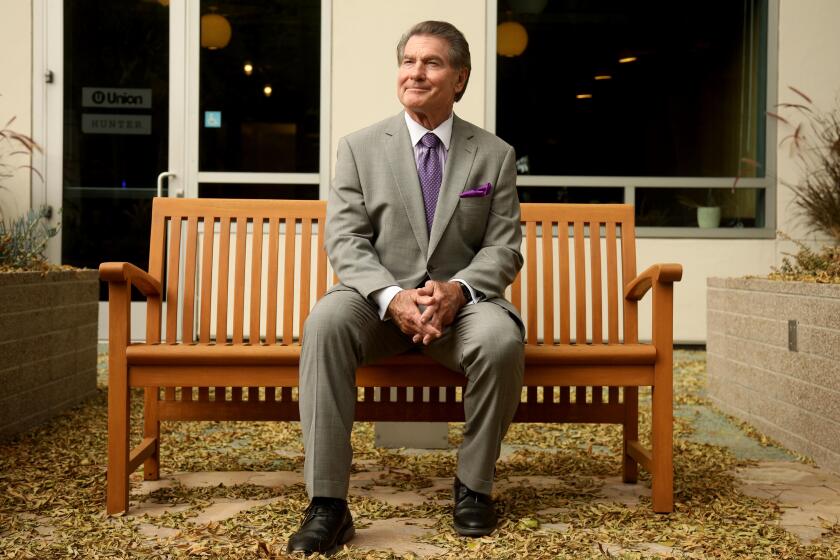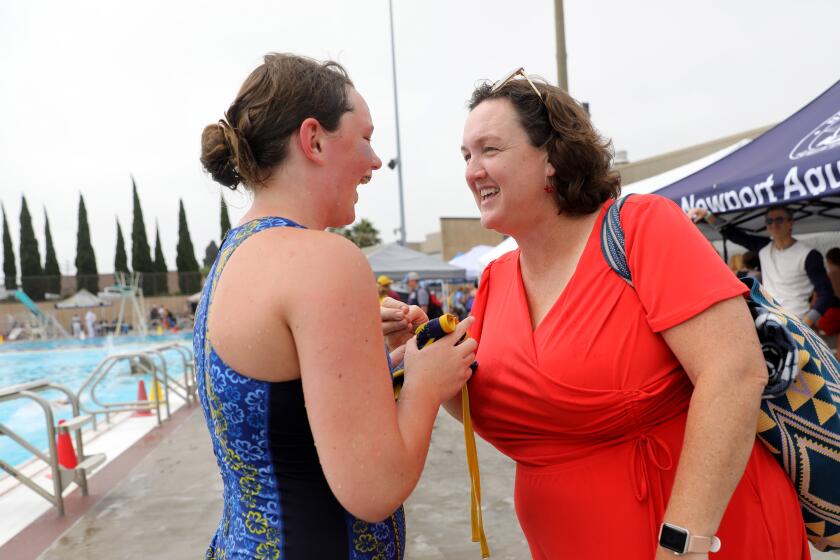
- Share via
WASHINGTON — California’s national reputation as a place of dreams and prosperity is in jeopardy, battered by Republicans who dislike almost all aspects of the state and many Democrats who see it as too costly and a poor place to raise a family.
Nationwide, 50% of U.S. adults believe the state is in decline, according to a new survey for the Los Angeles Times.
Political polarization has intensified the negativity: 48% of Republicans believe the state is “not really American,” the survey found. Three in 10 Republicans say the home of Yosemite’s sheer peaks, Sequoia’s towering redwoods and Malibu’s beaches has a worse natural environment than other states.
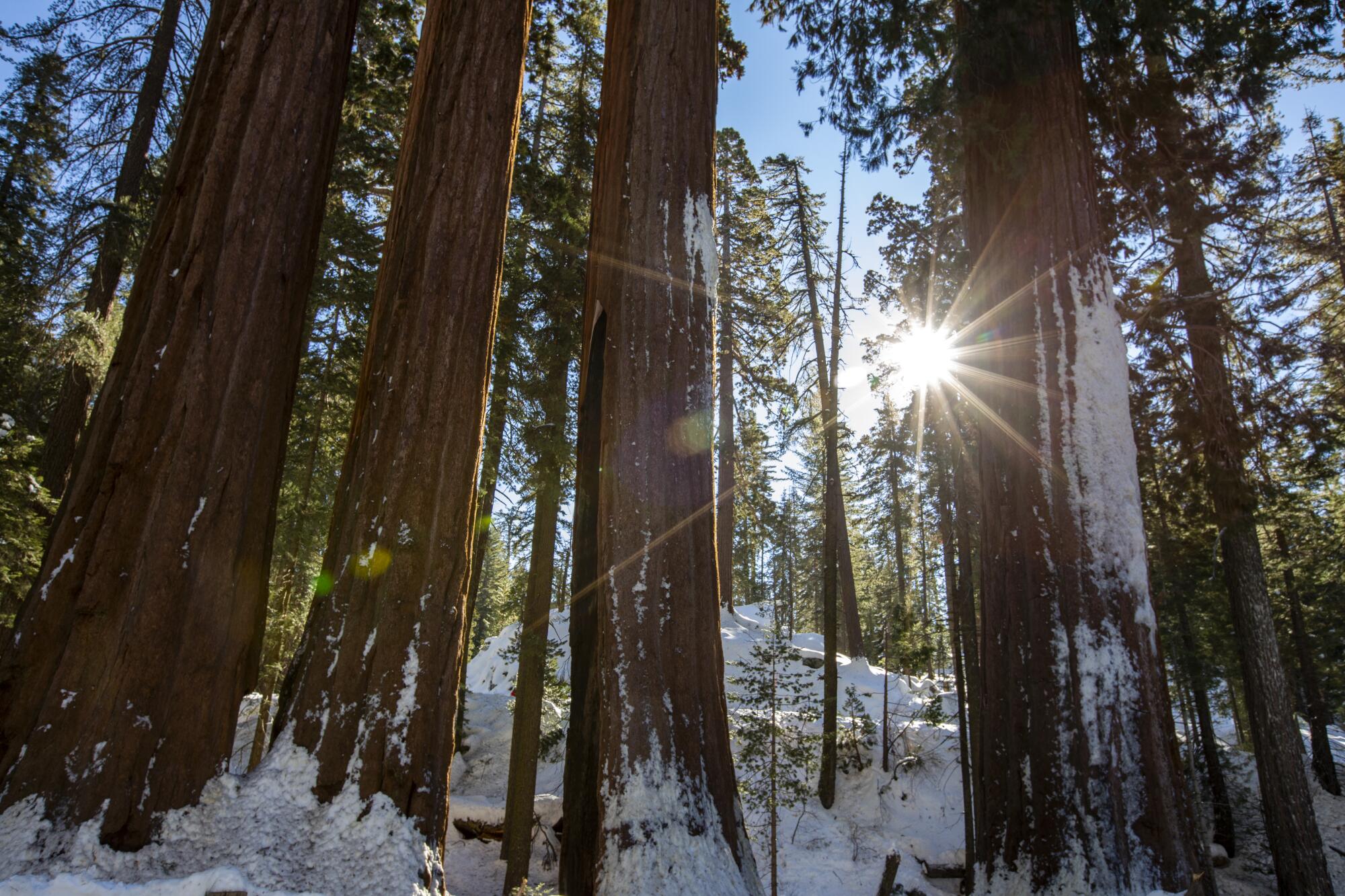
Nearly 40% of Republicans don’t even think California is a good place to visit, though a majority in both parties say they have been to the state, according to the survey of 1,004 adults, conducted Jan. 26-28 by Leger, a Canadian firm that has polled extensively in the United States.
“If you are a more conservative American, you basically do not like California,” said Christian Bourque, Leger’s executive vice president and the poll’s supervisor. “Of course, we all expected some of that, but the differences are actually quite striking.”
California has, however, maintained its reputation as a new frontier, particularly among young people, who have long fueled the state’s energy.
Six in 10 adults nationwide think the state is a trendsetter and that it has had a positive impact on the country. The share who see California as a trendsetter rises to 7 in 10 among those ages 18-34. A similar share of younger Americans also says that California’s impact on the U.S. has been positive.
Younger people were also twice as likely (43%) to say they would consider moving to the state as are other Americans. Job opportunity was the top reason they cited (36%).
California’s primary election takes place on March 5. Read up on the races in L.A. city, L.A. County and other areas.
Among Republicans, just one-third said that the state’s impact on the country has been positive, while two-thirds said it has been a net negative.
The extent to which partisanship drives opinion can also be seen in how much Americans’ views of California overlap with opinions on seemingly unrelated, but similarly polarized, topics such as climate change, gender equality, racism and abortion.

Subscribers get exclusive access to this story
We’re offering L.A. Times subscribers special access to our best journalism. Thank you for your support.
Explore more Subscriber Exclusive content.
People who see racism as an important issue in the U.S., for example, are more than twice as likely to think California is a good place to visit (77%) than are those who think racism is unimportant (35%).
Californians do have notably different views than the rest of the country on some issues. Abortion stands out: Nearly half (46%) of Californians say abortion should be legal in all cases, a view shared by just over 1 in 4 adults nationwide.
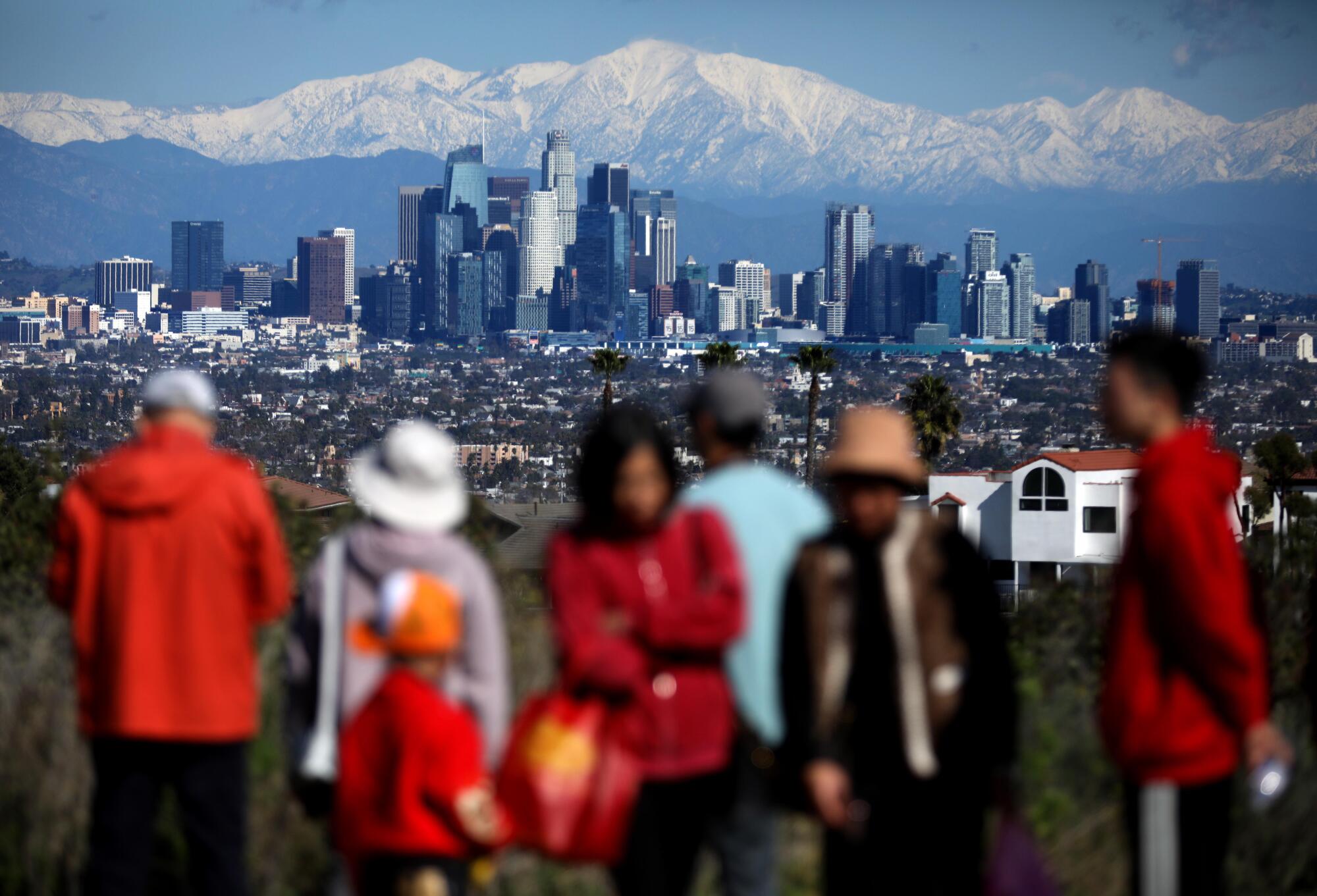
Beyond partisanship, the poll underscores how economic trends of recent years have affected California’s image. High housing prices have led to a persistent crisis of homelessness and have helped drive three straight years of population decline after more than a century of nonstop growth.
Californians in both parties, even those who appreciate the state’s natural environment and cultural values, have complained it has become too expensive, with roughly 8 in 10 California residents and nearly 9 in 10 in the rest of the country holding that view, the poll found.
Only about 2 in 5 Americans called California a good place to raise a family, and a similar share said its economy is strong.
The Burbank congressman and Senate candidate, known to the nation for the impeachment inquiry into the ex-president, has long been driven by the pursuit of justice.
Fewer than 3 in 10 people nationwide judged the state’s colleges and universities — consistently ranked among the best in academic surveys — as better than other states’ higher education options. Notably, however, younger Americans and adults who live in California were significantly more likely to rate California colleges and universities as better than others.
The degree to which political or ideological beliefs color such opinions was pervasive. For example, fewer than 1 in 5 people overall said California has a better standard of living than other states. That falls to 1 in 10 among Republicans. A majority in the GOP say California’s standard of living is worse than most states.
By contrast, about 1 in 3 Democrats say California’s standard of living is better than most states, while 4 in 10 say it’s about the same and fewer than 2 in 10 call it worse.
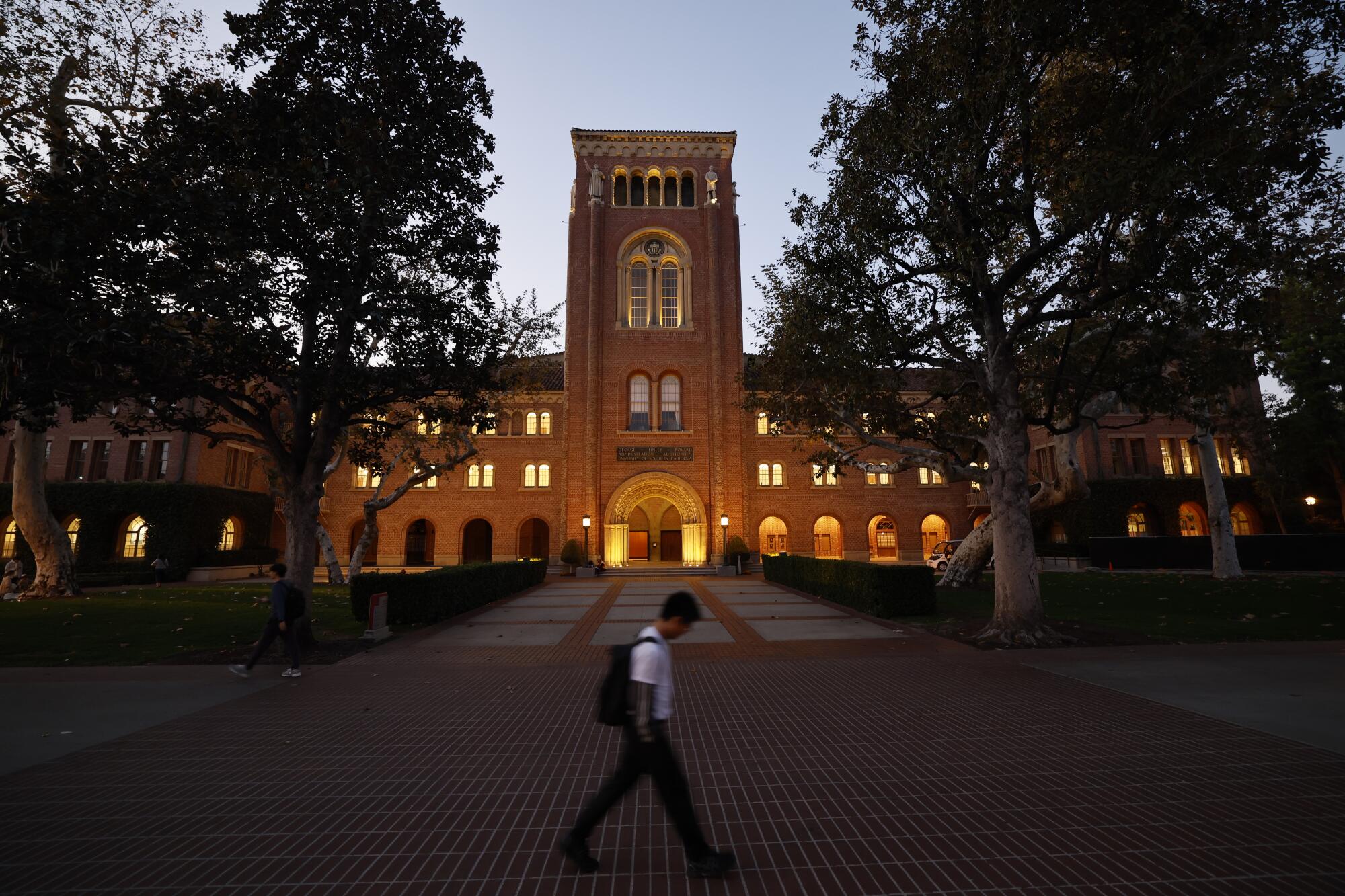
Political divisions have subsumed many aspects of American life in recent years. But California has been the target of particularly virulent attacks from conservative media personalities and politicians as it has shifted from political battleground to Democratic lock. The attacks accelerated during Donald Trump’s presidency, when the state often sued the federal government, especially on immigration and environmental policies.
Memories of Republican Govs. Ronald Reagan in the 1960s and 1970s or Pete Wilson in the 1990s have receded for many Americans as the state has morphed into an emblem of progressivism — propelled by Democratic Gov. Gavin Newsom’s push to sign laws designed to combat red-state policies on climate, abortion, immigration status, gender and other hot-button issues.
Not all Democrats are on board with that shift — 30% call the state too liberal, a view shared by 81% of Republicans.
Two of Garvey’s children say he has declined to meet with them, while his eldest daughter says he cut her and her children off without explanation.
Conservative politicians have increasingly defined themselves by opposition to California: “Don’t allow Florida to become San Francisco,” Florida Gov. Ron DeSantis declared this month as he unveiled legislation designed to reduce homelessness that included a crackdown on camping in public places.
DeSantis has been a leading critic of the state, releasing videos from San Francisco as part of his former presidential campaign in which he claimed (without proof) that he had seen people defecating on the street.
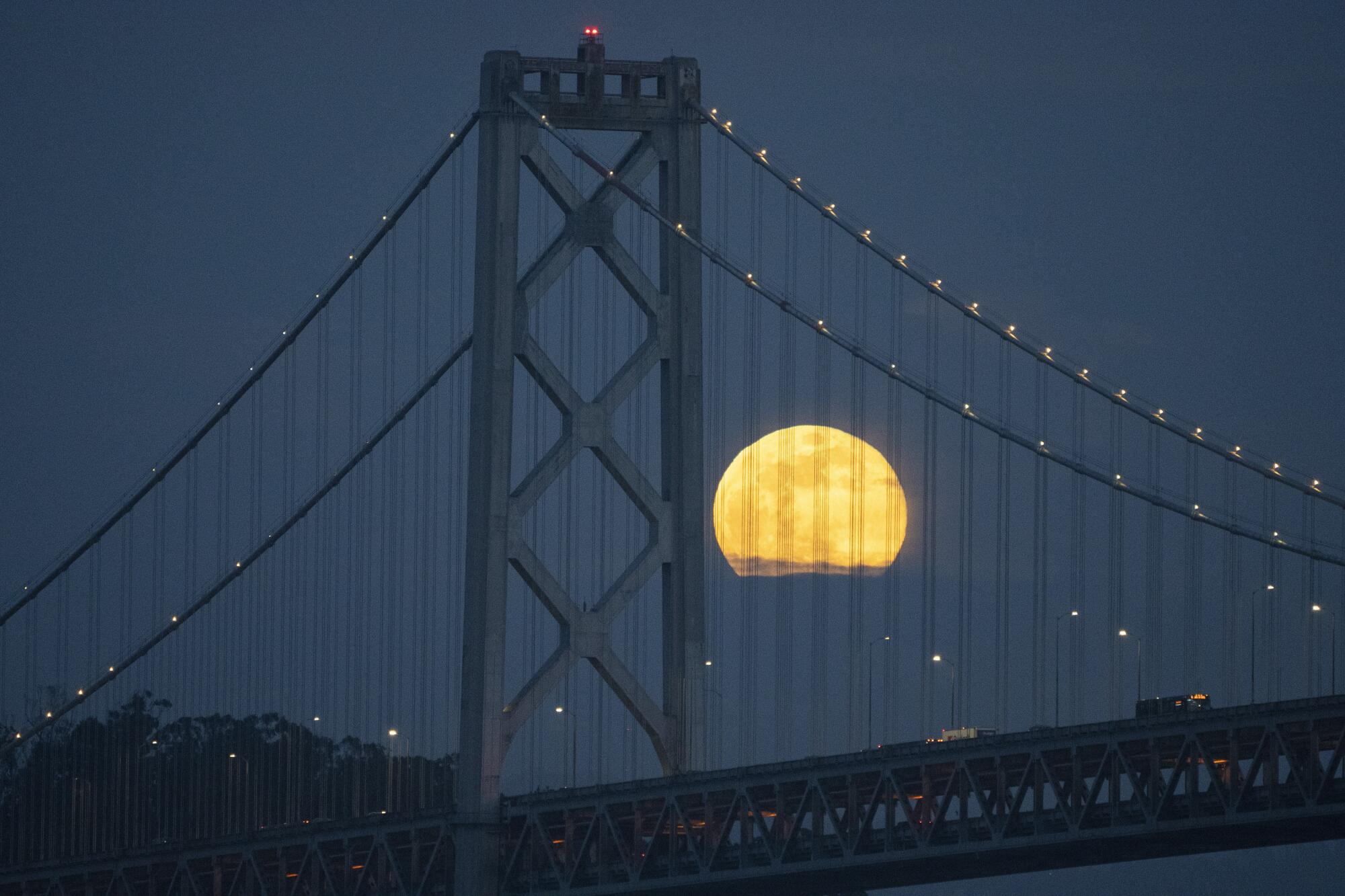
Other conservatives, including Elon Musk, the billionaire owner of Tesla and X, have joined in railing against the state’s former COVID-19 restrictions, its laws allowing gender affirming care for minors and its policies granting access to subsidized public healthcare for low-income people who came to the country illegally.
The public pounding by Fox News and conservative social media has helped drive negative views of the state on issues such as safety: Three-quarters of Republicans say they think the state is unsafe, despite recent improvements in crime statistics in Los Angeles and other major cities. In 2022, the most recent year for which the FBI has released state-by-state data, California’s reported rate of violent crime was above the national average, but similar to the rates in states as disparate as Colorado, South Carolina and Missouri.
The policy and cultural clashes over California came to a head in December when DeSantis debated Newsom on Fox News over whose state is better governed and whose definition of freedom better matched the American ideal.
The answer for many Americans appears to be a draw, according to the poll: California and Florida were roughly tied when people were asked which of the two states better represents their values — 52% sided with Florida, 48% with California. The division was similar when the poll asked about California versus Texas.
A blunt demeanor, professorial intellect and sometimes polarizing ways have defined her three terms as an outspoken member of Congress from a competitive Orange County district.
Views on whether California is more free than other states showed a similar split, with roughly a quarter saying it was more free and another quarter saying it was less free. The rest said it was roughly the same or declined to answer.
Newsom has argued that California stands for freedom, citing its protection of abortion rights, affordable healthcare, clean air and other progressive priorities.
The poll indicated he has support for that vision at home. Asked if the state is better on freedom than other states, Californians in the survey were twice as likely (43%) to say yes as were adults nationwide (21%).
State residents also give California higher marks on healthcare, higher education, its natural environment, race relations and its standard of living than do people nationwide.
The Leger poll was conducted online among 1,004 U.S. residents ages 18 and older, including 120 California residents. The sample was weighted to match benchmarks for age, gender, region, education and ethnicity. The estimated margin of error is 3.1 percentage points for the full sample.
More to Read
Sign up for This Evening's Big Stories
Catch up on the day with the 7 biggest L.A. Times stories in your inbox every weekday evening.
You may occasionally receive promotional content from the Los Angeles Times.


